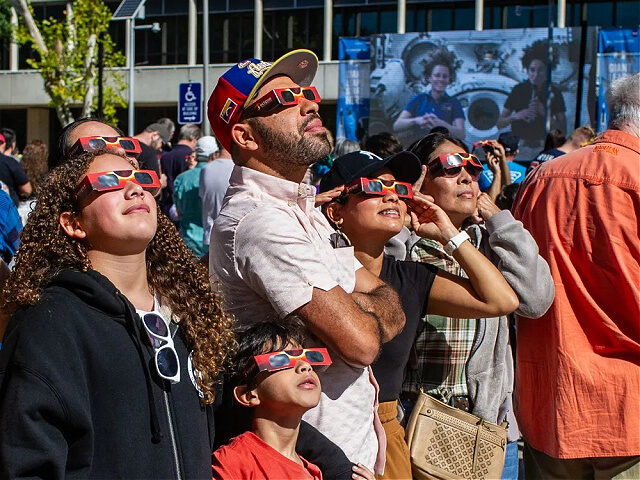NASA says a total solar eclipse will be visible on April 8, a view that is sure to awe Americans across the nation.
While moving along its path, the total solar eclipse will cross North America, go over Mexico, the United States, and Canada, the agency announced recently on its website.
“The total solar eclipse will begin over the South Pacific Ocean. Weather permitting, the first location in continental North America that will experience totality is Mexico’s Pacific coast at around 11:07 a.m. PDT,” NASA continued:
The path of the eclipse continues from Mexico, entering the United States in Texas, and traveling through Oklahoma, Arkansas, Missouri, Illinois, Kentucky, Indiana, Ohio, Pennsylvania, New York, Vermont, New Hampshire, and Maine. Small parts of Tennessee and Michigan will also experience the total solar eclipse. The eclipse will enter Canada in Southern Ontario, and continue through Quebec, New Brunswick, Prince Edward Island, and Cape Breton. The eclipse will exit continental North America on the Atlantic coast of Newfoundland, Canada, at 5:16 p.m. NDT.
Delta Air Lines had the interesting idea to offer a trip from Austin, Texas, to Detroit so travelers may have a chance to be in the path of the eclipse’s totality as the moon’s shadow covers the sun, UPI reported Tuesday.
“Solar eclipses are a rare phenomenon in America. Only three have passed through the lower 48 states over the last century — in 2017, 1979 and 1918,” the outlet said.
Video footage from 2017 shows Americans enjoying the total solar eclipse while wearing special eye protection.
“This is something that I will be dreaming about and thinking about for the rest of my life,” one woman told CBS Mornings:
According to Breitbart News, a solar eclipse reveals the sun’s corona, which the outlet said scientists have continued to study during the few minutes of totality.
“So while religious tradition suggests that eclipses may be bad omens, it is also true that during the time of greatest darkness, the most profound light may emerge. And in the instant when earth is shrouded in shadow, that is when the deepest insights about God’s creation may be studied, however fleetingly,” the outlet’s Joel B. Pollak wrote.

COMMENTS
Please let us know if you're having issues with commenting.